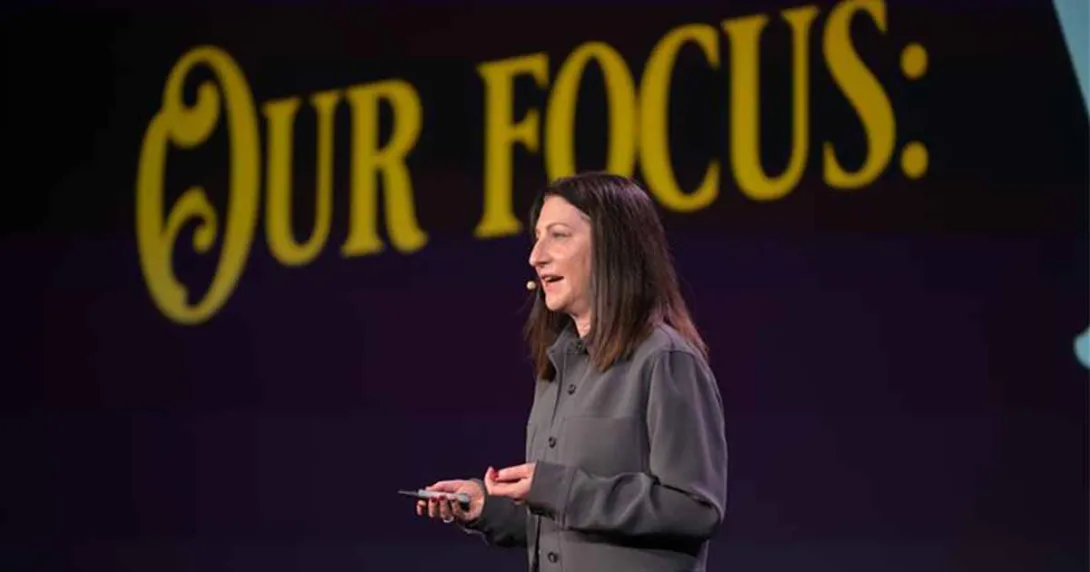
NextGen Healthcare, a prominent vendor of ambulatory electronic health records and practice management systems, will be presenting an educational session titled "Re-imagining the EHR in the AI Agentification World" on Wednesday, March 5, at 1:30 p.m. at HIMSS25 in the AI Pavilion.
As AI agents become more deeply integrated, electronic health records and practice management systems are becoming dynamic, intelligent platforms that actively assist clinicians, automate administrative tasks and enhance decision-making.
Where are AI-driven platforms headed next, and what does this mean for the future of healthcare delivery? And as technology moves from rule-based automation to adaptive intelligence, what challenges must be addressed to ensure AI enhances, rather than disrupts, clinical workflows? These are questions NextGen Healthcare plans to answer in the session.
Srinivas Velamoor, president and COO, and Diane Kaye, chief product officer, will be speaking.
The 'agentification' of health IT
"Our goal is to inspire providers and healthcare administrators to begin thinking beyond the traditional constraints of healthcare IT software," Velamoor said. "We believe that 'agentification' of health IT software that integrates AI and automation is enabling a real-time reimagining of practice operations, workflows and the patient-provider experience – from pre-visit preparation to the actual encounter to RCM and ongoing care management.
"When thoughtfully integrated into core workflow systems like the EHR and PM, AI creates an enhanced provider experience that is faster, more intuitive and eliminates experiential friction," he added.
Kaye said there are various advantages of agentic AI for hospitals, health systems and ambulatory practices.
"In this session, we are illustrating the deconstruction of the EHR," she explained. "At its best, the EHR is much more than a data collection tool and system of record – it can be an enabler of a fundamentally redefined clinical workflow that is more clinician-oriented.
"By allowing the health tech industry to rethink pre-defined, legacy ways of doing things, AI agentification is enabling a real-time recalibration of the work to be done, redistributing workloads across human and digital entities and therefore delivering greater clinician flexibility, speed and automation so providers can focus on the patients in front of them," she said.
Intuitive, adaptive and supportive
The industry already is seeing AI improving individual tasks – documentation, orders, coding and patient engagement – rather than just layering complexity on top of existing systems, she continued. The result is more intuitive, adaptive and supportive technology for clinicians that yields greater ROI, she said.
"Of course, thoughtful integration remains key; we want to always recognize that AI is yet another means to an end, not the end result," she noted.
Velamoor said there will be many takeaways he hopes session attendees will grasp and take home and apply at their healthcare organizations. He offers one.
"We want attendees to understand that it is not hyperbole to say AI and agentification can help us materially address the performance and experiential limitations of traditional health IT SaaS solutions," he explained. "Strategically integrated AI has the power to meaningfully improve healthcare delivery as long as we lead with the outcomes we want to enable and work closely with patients and providers to manage that change."
Hopefully, each attendee will feel emboldened to consider what a reimagined approach to key areas of healthcare delivery could actually look like in their own practice of medicine, Kaye concluded.
Follow Bill's HIT coverage on LinkedIn: Bill Siwicki
Email him: bsiwicki@himss.org
Healthcare IT News is a HIMSS Media publication.
WATCH NOW: Tech boosts long-term care communication and administrative processes